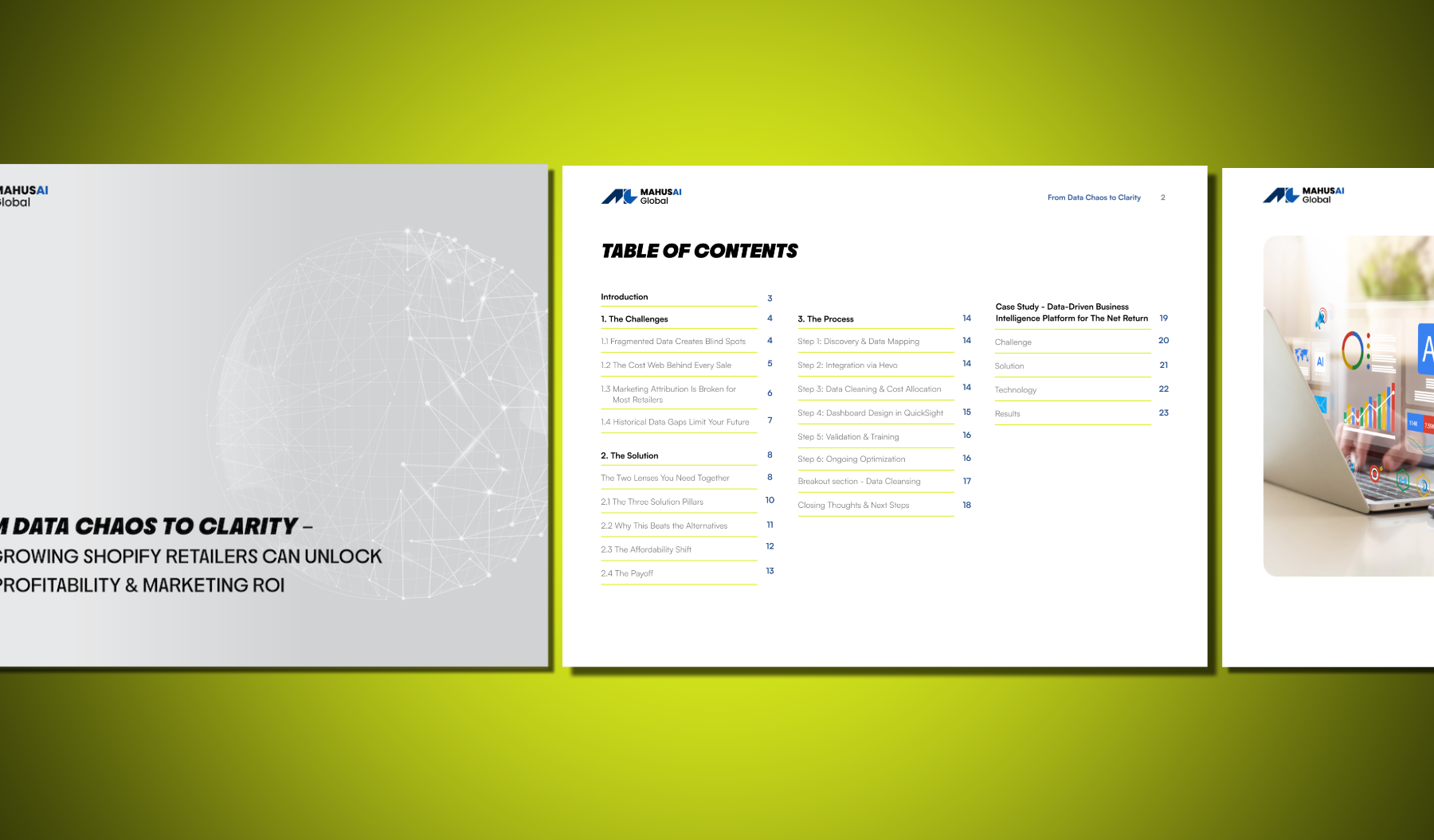The True Cost of Fragmented Marketing and Sales Analytics
Small and medium-sized businesses (SMBs) commonly leverage multiple specialized tools to handle distinct sales and marketing functions, from CRM and CMS to social media management and email automation. This approach often works well operationally. However, when it comes to analytics and business insights, fragmented data from these multiple systems can significantly limit effectiveness, driving hidden costs and hindering strategic decision-making.
Let's be clear: the problem isn't using specialized tools—it's managing fragmented analytics. Disconnected data from multiple platforms creates operational headaches, data discrepancies, and missed insights, typically inflating costs by 20-30%. Marketing and sales teams frequently underestimate the complexity and effort required to manually integrate data and create cohesive business views, diverting resources from core strategic initiatives.
The Case for Unified Data Analytics
Unified data analytics, supported by a modern enterprise data model and integrated into a data warehouse, offers a powerful yet affordable solution. This approach maintains operational flexibility—allowing teams to use specialized tools—while delivering cohesive analytics and consistent insights. Here's why this is critical:
Consistent, Reliable Insights Across Tools
Specialized sales and marketing tools naturally create isolated data silos, leading to inconsistent views of customer journeys, campaign effectiveness, and sales performance. Unified analytics solutions consolidate data from these various sources, providing a clear and comprehensive view without forcing operational compromises.
Reduced Operational Complexity and Costs
Manually integrating, cleaning, and reconciling data from multiple platforms is expensive and resource-intensive. A unified data analytics platform dramatically simplifies this process, significantly reducing operational overhead. Resources previously spent managing fragmented data can instead be reinvested into strategic growth initiatives.
Enhanced Strategic Decision-Making
Unified analytics empower sales and marketing teams with actionable insights, enabling more informed and timely strategic decisions. Teams can seamlessly track performance across multiple channels, optimize campaigns more effectively, and better understand customer behavior.
How SMBs Successfully Adopt Unified Data Analytics
Based on our experience at Mahusai, SMBs typically approach this transition strategically:
- Foundation Phase: Establish a unified analytics infrastructure with integrated data governance to create a reliable and comprehensive data foundation.
- Optimization Phase: As the business matures, continue using specialized tools but ensure their analytics feed seamlessly into the unified data platform for clear, actionable insights.
- Maturity Phase: Continuously refine analytics, maintaining flexibility to adopt new specialized tools without compromising data consistency or strategic visibility.
This strategic approach allows SMB marketing and sales teams to retain the benefits of specialized operational tools while achieving superior analytics clarity and strategic control.
Real-World Sales and Marketing Impact
Consider one of our SMB e-commerce clients previously using separate platforms like Shopify, Google Analytics, HubSpot, and Salesforce. Initially, they had good operational functionality but poor data integration. Transitioning to a unified data analytics platform significantly improved their strategic insights, enabling better campaign optimization and customer targeting, reducing analytics-related operational costs by approximately 25%, and improving overall marketing ROI.
Evaluating Your Analytics Strategy
Choosing your analytics strategy should align with your team's resources, complexity, and strategic goals. At Mahusai, we help SMBs objectively assess:
- Team Capacity: Can your marketing and sales teams effectively manage manual integrations, or would they benefit from a unified, automated analytics solution?
- Analytics Requirements: What specific analytics insights and capabilities are essential for driving strategic decisions?
- Scalability Needs: How rapidly will your analytics and data integration requirements evolve?
A unified data analytics solution anchored in a modern data warehouse provides strategic flexibility, simplicity, and powerful insights, empowering your sales and marketing teams to make data-driven decisions efficiently and confidently.
Take Control of Your Sales and Marketing Insights
Analytics success is ultimately about turning fragmented data into unified, strategic insights. By adopting a unified data analytics approach, SMBs gain the operational freedom to choose best-of-breed tools while achieving the clarity, control, and cost-efficiency needed to thrive.
If you're exploring analytics solutions, let's discuss how unified analytics can optimize your sales and marketing decision-making.




